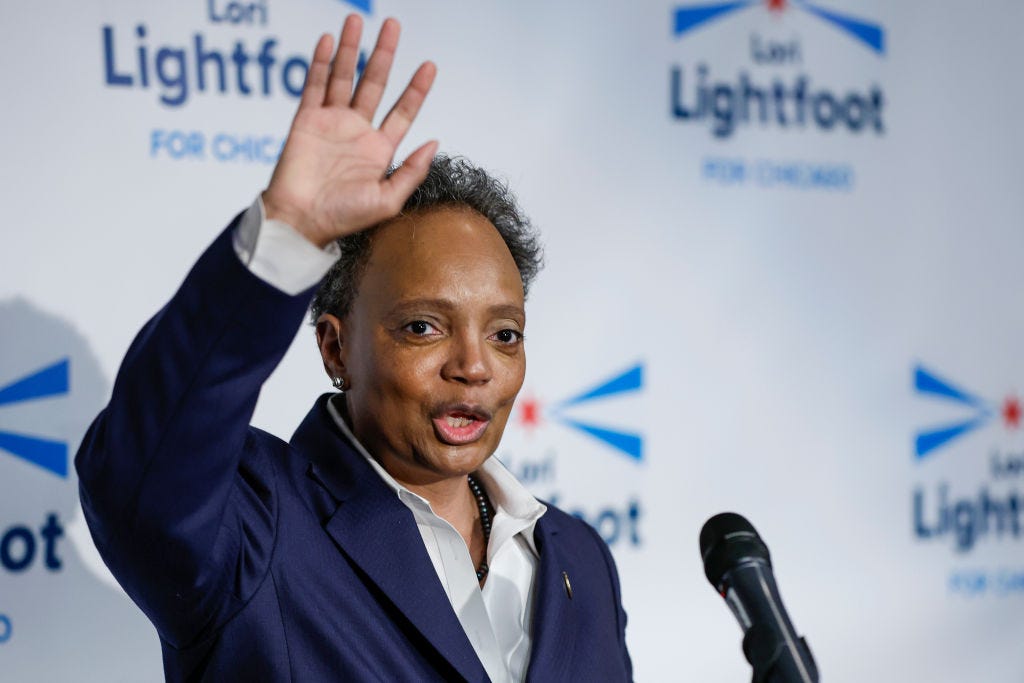On Tuesday, Lori Lightfoot became the first Chicago mayor in 34 years to lose an election. For those following the race and tracking the polls, this was not a shock. In four years, Lightfoot had become remarkably unpopular, alienating liberals and conservatives alike. Two powerful unions that wanted nothing to do with each other, the Chicago Teachers Union and the Fraternal Order of Police, each warred with her and backed different candidates. Lightfoot managed to anger progressives who believed she was too supportive of police and big business while losing moderates who felt she didn’t do enough to reduce Chicago’s alarmingly high homicide rate.
Lightfoot faced tremendous challenges that could have undone any big city mayor. Less than a year into her tenure, she had to lead Chicago through the worst pandemic in a century. Downtown emptied out, schools closed, and gang violence surged. The mass protests over the murder of George Floyd gave way to rioting and social unrest unseen since the 1960s. Lightfoot’s prickly governing style netted her few allies—the liberal governor of Illinois, J.B. Pritzker, came to resent her—but even the most charismatic of coalition-builders would have struggled. Whether they would have missed a runoff entirely is another matter.
For New Yorkers, Lightfoot may offer a window into what’s to come. She was one of the few big city mayors to govern through the pandemic and have to face voters shortly afterward. Bill de Blasio and Eric Garcetti in Los Angeles were term-limited. Marty Walsh left Boston to become Joe Biden’s labor secretary. If Lightfoot failed to win, can the same happen to Eric Adams, who already, one year into his tenure, has a negative approval rating?
It’s not impossible.



